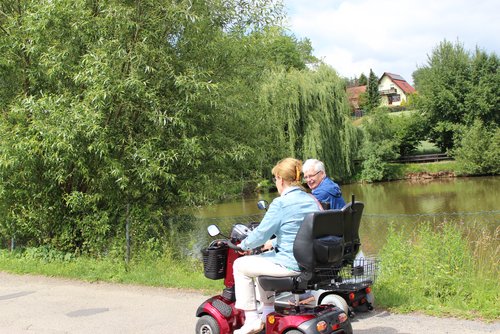Demonstrating the Zwickauer turn of energy policies (“Zwickauer Energiewende Demonstrieren” ZED)

The priority is to match potential innovations to the skills and interests of the users. The focal topics include energy stores, district development, digitalisation and zero emissions districts.
bifa, together with the “Social Structure and Environmental Consumption” workgroup of Ludwig-Maximilians-Universität in Munich, is involved in the ZED subproject on "sustainable and user-orientated technology development" (“ZED – Nachhaltige und nutzerorientierte Technologieentwicklung”).
Residents are able to test new means of transport, using the example of the e-scooter. “We want to find out about the daily movement pattern in the district and test whether e-scooters can be a viable alternative to the car or walking with baggage”, said Sven Leonhardt, project coordinator of “Zwickauer Energiewende Demonstrieren”.
Since the end of August, residents of the Marienthal district have been able to register to test this electric vehicle. The test is supported by the Johanniter, an evangelical accident assistance organisation, and Sanitätshaus Alippi, a medical store. The aim is to find out whether, for example, electric vehicles are a useful innovation for the future and therefore can be expected to have a positive effect on the turn of energy policies at district level. The main objective is to create a sustainable supply structure in the Marienthal district and to ensure affordable housing for all that is energy-efficient and as climate-neutral as possible.
You want more information?
You are welcome to contact me:
Dr. Michael Schneider
mschneider@bifa.de
![[Translate to Englisch:] Placeholder](/fileadmin/_processed_/f/4/csm_Header_Presse_d565a61df7.jpg)